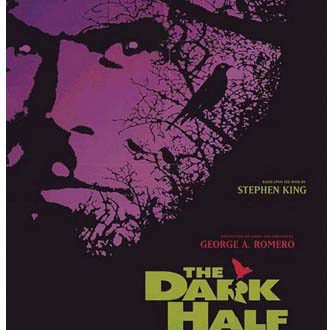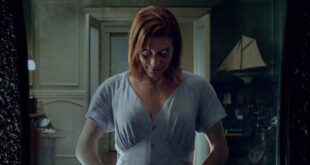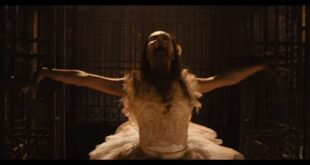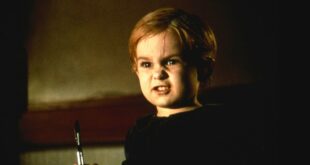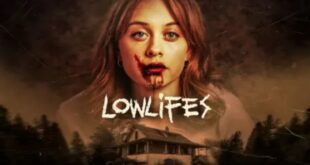Directed by George A. Romero, Stephen King’s The Dark Half is a complicated film, with much of the storyline being open to interpretation. It’s also just a fun horror movie, Hoss.
To be honest, I have not watched The Dark Half recently, yet many of the plot details and imagery are somehow fresh in my mind. More importantly, I remember the moods and impressions I got from this fine film. That’s what much of this movie is about, ultimately.
The story itself is fairly convoluted and far-fetched; Blackmailed for writing sleazy, violent novels under the pseudonym George Stark (Timothy Hutton), author Thad Beaumont ( also Timothy Hutton) decides to kill off his alter ego. Unlike when Stephen King knocked off his own pen name, Richard Bachman, Stark refuses to die. It’s an interesting concept — especially when Stark’s symbolic publicity photo burial takes on a life and personality of its own. I like the idea of an author pretending to bury his pseudonym, only to have the fictional being rise from the grave and exact revenge on its own death. It’s also great that they’re both played by the same person.

Another interesting angle? King explores the gulf between conventional, respectable writing (that is usually on the boring side) and the stories from the dirtier, sleazier, more violent side. In the process of discovering the maniacal and macho George Stark, a viewer may find his or herself rooting for the guy — even though he does absolutely nothing respectable.
You see, a constant hint within the horror genre is how this dark half exists in all of us. This is partly why people keep returning to movie monsters like Dracula, Freddy Krueger and Jason Voorhees. In the end, these characters remind us of our own dark halves. It’s like a rollercoaster ride. Mainstream society always laughs at or condemns horror stories and their villains. It consider them bad, even harmfully schlocky. However, they are a scapegoat and even a necessary evil.

It should be noted that, in lesser hands, The Dark Half would have surely faltered. Mr. Romero did a great job creating King’s nightmare imagery, so that the more confusing story elements — like the theme of sparrows, or the idea of Stark being Thad’s twin — somehow seem plausible. In a way, the story suggests that reality itself is carried along by its own horrors, and that we are ultimately haunted (and in some cases, stalked and killed) by our own collective, creative urges. On that note, I will always remember the freaky, haunting dream image of Liz Beaumont (Amy Madigan)….
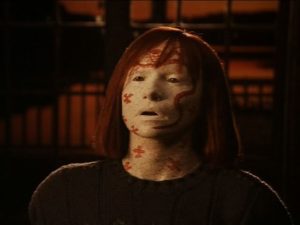
We will never be safe from horror — be it our figurative or literal creations. We often grant our imaginations immense sway over ourselves, and it can lead to dependence and destruction. The Dark Half seems aware of this and has elements of parody and self-awareness. Notably, it was written after Stephen King was exposed as the real man behind the Richard Bachman novels. Makes you wonder what happened to King when he buried his own nom de plume.
The final message seems rather nuanced: A fictional character can’t actually come alive and kill people, but people do kill each other and themselves over fictions all the time… or for no apparent reason at all. Sometimes it’s just their nature, much like George Stark.
 PopHorror Let's Get Scared
PopHorror Let's Get Scared
